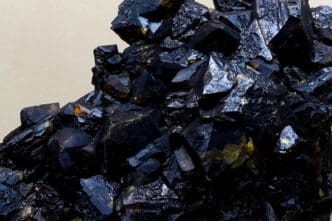Executive Summary
The Story So Far
Why This Matters
Who Thinks What?
European Council President Antonio Costa announced on Monday that high-level Chinese officials are expected in Brussels in the coming weeks to address Beijing’s recent export controls on rare earth materials, measures that have heightened global trade tensions. Speaking on the sidelines of the ASEAN summit in Kuala Lumpur, Costa expressed significant concern over China’s expanded restrictions, which he noted have contributed to a global shortage of these critical raw materials.
Rare Earth Export Controls
China currently dominates the global market, controlling over 90% of the world’s supply of rare earth materials. These elements are indispensable for various high-tech manufacturing sectors, including electric vehicles, semiconductors, and advanced defense systems like missiles. The European Union aims to resolve these trade issues through diplomatic engagement.
Geopolitical Dynamics
During his interview, Costa also stated that China is uniquely positioned to facilitate an end to the conflict between Ukraine and Russia. He further suggested that Beijing appears to underestimate the significant influence it wields over Moscow in this geopolitical situation.
Regional Trade and Elections
Additionally, the European Council President indicated that the EU intends to finalize trade agreements with several Southeast Asian nations soon. These include Malaysia, Thailand, and the Philippines, reflecting the bloc’s broader engagement in the region following his participation at the ASEAN leaders’ meeting.
Costa confirmed that the EU would not dispatch observers to the upcoming election in Myanmar. This decision underscores the European bloc’s stance of non-recognition regarding the authority of the military-led administration currently governing the country.
Outlook
Costa’s remarks highlight the EU’s multifaceted engagement with China, ranging from critical trade disputes over essential raw materials to calls for Beijing’s increased role in global conflict resolution. The upcoming high-level discussions in Brussels will be closely watched for their potential impact on global supply chains and international diplomacy.








